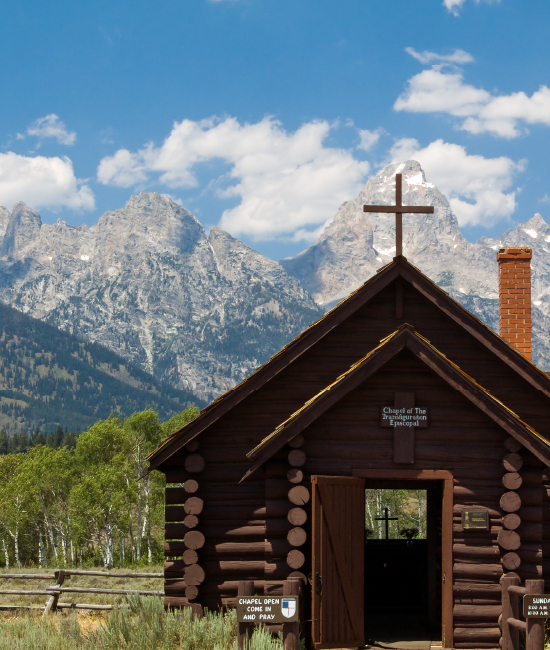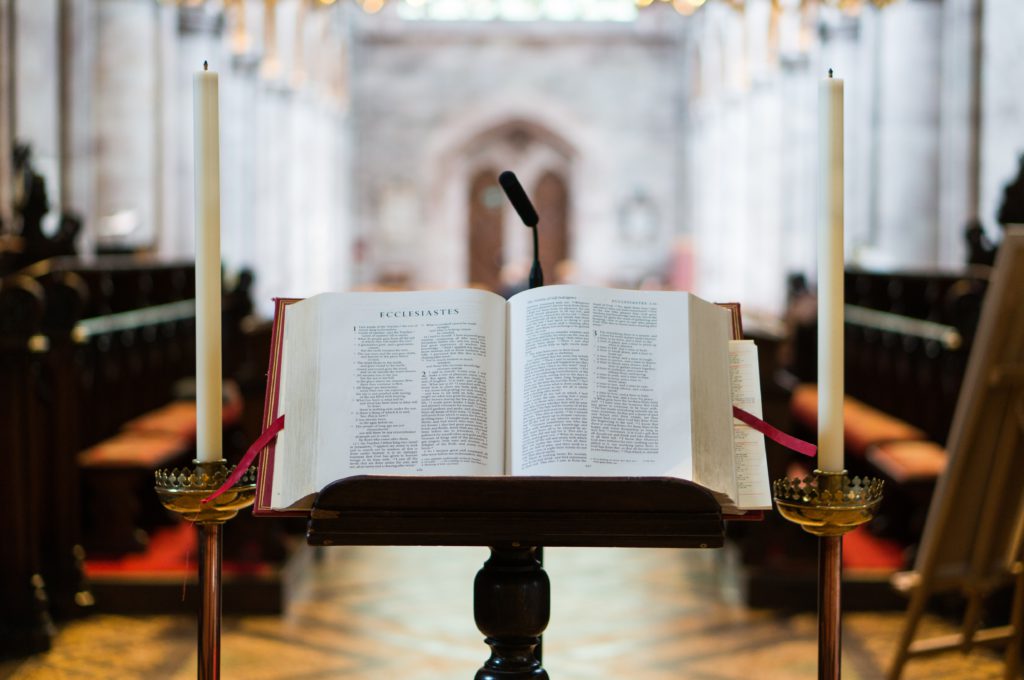Seeking to nurture your spiritual growth and build your faith? Download Abide for faith-based meditations. Explore practices like centering prayer & meditation on biblical themes. Find peace & meaning with God’s Word.
Share the post "Questioning God? Here’s a Biblical Response to Doubt "
Mark 9:23-24 might stand as one of the hardest passages in the Bible to understand. A distraught man in a crowd needed Jesus. His son had an impure spirit that threw him into fits and robbed him of speech. Here’s the whole story, in case you wonder if it’s wrong to question God:
A man in the crowd answered, Teacher, I brought you my son, who is possessed by a spirit that has robbed him of speech. Whenever it seizes him, it throws him to the ground. He foams at the mouth, gnashes his teeth and becomes rigid. I asked your disciples to drive out the spirit, but they could not.”
“You unbelieving generation,” Jesus replied, “how long shall I stay with you? How long shall I put up with you? Bring the boy to me.”
So they brought him. When the spirit saw Jesus, it immediately threw the boy into a convulsion. He fell to the ground and rolled around, foaming at the mouth.
Jesus asked the boy’s father, “How long has he been like this?”
“From childhood,” he answered. “It has often thrown him into fire or water to kill him. But if you can do anything, take pity on us and help us.”
“‘If you can’?” said Jesus. “Everything is possible for one who believes.”
Immediately the boy’s father exclaimed, “I do believe; help me overcome my unbelief!”
How can you believe and yet have unbelief at the same time? Does the Bible leave room for doubt? Is it wrong to question God?
Understanding Doubt
Doubt can be defined as a feeling of uncertainty or lack of conviction. It is a natural human emotion that can arise from various sources. In the context of faith, doubt often manifests as wanting to question God, His presence, promises, or actions.
The Psalms are full of questions regarding God’s actions: “Why, O Lord, do you stand far away? Why do you hide yourself in times of trouble?” (Psalm 10:1); “How long, O Lord? Will you forget me forever? How long will you hide your face from me?” (Psalm 13:1); “My God, my God, why have you forsaken me? Why are you so far from saving me, from the words of my groaning?” (Psalm 22:1), to name just a few.
But didn’t God call King David, who wrote the above psalms, a man after His own heart? David’s questioning God did not mean that he didn’t believe in God.
Why We Doubt
There are many reasons people have for doubting God. In my family, it was my youngest son who struggled to hear God and so decided He didn’t exist. Here are some others:
- Personal Experiences: Life’s challenges, such as suffering, loss, or unanswered prayers, can lead to questioning God’s love and sovereignty.
- Logical Reasoning: Intellectual pursuits and critical thinking may prompt questions about faith, Scripture, and the nature of God.
- External Influences: Social, cultural, and environmental factors, including differing worldviews and skepticism from others, can contribute to doubt.

How God Sees Our Questions
It’s important to note that Jesus did not condemn the father of the boy with the impure spirit for his unbelief. Jesus knew the man was deeply concerned over what had been happening to his son for many years. But the father had seen what Jesus could do. He had heard the stories. But they were so incredible! How could a man have so much power? It was only when he was with Jesus that his unbelief turned into faith because of the words Jesus spoke. “Everything is possible for one who believes.” The man’s response? “I do believe; help me overcome my unbelief.”
The father of this boy had no precedence for believing that someone could come along and heal his child. But I believe hope began to grow. He didn’t hold to a stubborn disbelief that it couldn’t be done. That Jesus didn’t have the power. But when he heard those words again, “Everything is possible for one who believes.”
In the Living Bible, this passage says, “’If I can?’ Jesus asked. ‘Anything is possible if you have faith.’ The father instantly replied, ‘I do have faith; oh, help me to have more!’”
The Dangers of Suppressing Questions
We might think that keeping our thoughts to ourselves is a good idea, but when it comes to doubting truths about God, it can be detrimental. Here are some possible consequences to suppressing our doubts:
- Mental Health Consequences: Ignoring or suppressing doubt can lead to anxiety, depression, and a sense of isolation.
- Stunted Spiritual Growth: Avoiding doubt prevents believers from exploring and strengthening their faith.
- Impact on Relationships with Others: Suppressed doubt can create barriers in relationships, making it difficult to share struggles and seek support.
The Fear of Expressing Doubt
Fear of judgment or rejection often prevents people from voicing their doubts. My son who decided God didn’t exist kept his doubts from us for several years. He feared disappointing us and adding to our emotional burden because his older brother had already walked away from his faith. I only found out about his doubts when I asked him how he was staying close to God being away from everyone he knew during one six-month season. That’s when the truth came out.
How I wish I had not been afraid of my kids’ questions when they were younger. I thought questioning meant they were in danger of falling away. Now I know that creating an environment where questioning is welcomed and addressed with empathy can alleviate these fears and encourage open dialogue. Would it have changed my sons’ minds? I don’t know. But it might have helped.

Biblical Responses to Faith Questions
Though we might fear our doubts, God does not. When you start to doubt (and I say “when” not “if” because there will most likely be a time when doubt creeps in), turn toward God instead of away from Him. Use David as an example and speak your questions to God. Here are biblical responses that might help:
Trust in God’s Sovereignty and Goodness Despite Doubts
Even when doubts arise, trusting in God’s unchanging nature provides a foundation of hope and assurance. His sovereignty reminds us that He is in control, and His goodness assures us of His loving intentions. Remember His goodness in the past and trust that He never changes.
Seek Guidance from God’s Word and Prayer
Turning to Scripture and prayer for guidance and comfort can help you navigate times of doubt. The Bible offers numerous passages that address uncertainty and provide encouragement. Here are just a few:
- Jeremiah 31:3— “the Lord appeared to him from far away. I have loved you with an everlasting love.” Although God is speaking through the prophet Jeremiah directly to the Israelites here, their comfort can be our comfort. God loves you. He always has, and He always will.
- Luke 24:36-43—In this passage, Jesus appears to the disciples after His Resurrection. When He just appeared in the room, it frightened them. They were confused and scared and thought He was a ghost. He compassionately said to them, “’Why are you troubled, and why do doubts arise in your hearts?See my hands and my feet, that it is I myself. Touch me, and see. For a spirit does not have flesh and bones as you see that I have.’” Then comes this amazing verse: “And while they still disbelieved for joy and were marveling, he said to them, ‘Have you anything here to eat?’” What an astounding statement. Jesus will remind you who He is through His Word.
- The Psalms—Look especially at Psalm 56:3—”When I am afraid, I put my trust in you.” Many of the psalms start out with questions, but they all come to the same conclusion: God is who He says He is, and He can do what He says He can do. Don’t doubt in your darkness what you believed in the light. Hebrews 13 says, “Jesus Christ is the same yesterday and today and forever. Do not be led away by diverse and strange teachings, for it is good for the heart to be strengthened by grace …”
Seek Community Support and Accountability
Engaging with a supportive faith community can offer strength and perspective. Sharing doubts and seeking counsel from trusted individuals can provide clarity and reassurance. Chances are, if you share your questions someone else will have the same questions but been afraid to voice them. Be brave, friend. Seek answers to your questions and wait patiently for God.
How to Question God
- Approach Doubts with Humility and Reverence. When you question God, Approach your doubts with humility acknowledges our limited understanding and respects God’s infinite wisdom. Reverence ensures that our questioning remains respectful and genuine.
- Be Open to Learning and Growing. Viewing doubt as an opportunity for growth helps reframe it as a positive and transformative experience. Being open to learning fosters spiritual maturity and a deeper connection with God.
- Avoid Disrespectful or Accusatory Language. While it is essential to be honest in our questioning, maintaining respect and avoiding accusatory language preserves the sanctity of our relationship with God.

Faith is a Process
The father’s words “help me overcome my unbelief” serve as a great reminder that God does not expect us to have it all together—to have aced Theology 101—before we seek Him. When we question God from a posture of faith, He welcomes the opportunity to prove His love, His power, and His faithfulness.
There’s an interesting passage in Romans 4 where the Apostle Paul writes about Abraham’s faith. God had promised Abraham that he would be the father of a great nation. When Abraham looked at his own body at nearly 100 years old, and then at Sarah, who was also old, he could have doubted. I probably would have! But Paul wrote, “No unbelief made him waver concerning the promise of God, but he grew strong in his faith as he gave glory to God, fully convinced that God was able to do what he had promised.”
Note that Paul said Abraham “grew strong in his faith.” The more he saw God’s faithfulness, the more he gave glory to God, the stronger his faith grew. Abraham did not think it was wrong to question God; he just lived by who he knew God to be.
In 2nd Thessalonians 1:3, Paul also commends the church with these words, “We ought always to give thanks to God for you, brothers, as is right, because your faith is growing abundantly, and the love of every one of you for one another is increasing.”
For Further Reflection
Listen now to a short segment of an Abide meditation based on James 1:6. Let God speak to your heart about when you want to question God.
Faith is not a static thing. It grows and changes as we see God work. He has always been faithful, and He will always be faithful. Our faith is not misguided. But every time we see Him work, our faith increases.
God does not fear our questions, He’s not concerned by our doubts. He simply walks into the room like He did with Thomas and says, “Do not disbelieve, but believe.”
Let Abide be your daily companion when you question God, or when you’re just needing to draw closer to Him. Our 1500+ guided meditations, like the one above, all exist to help you know God better. Download the app and start a premium subscription. This will gain you access to our entire library of content. Use this link for 25% off.
Stephanie is the senior editor for Abide. She and her husband live in Orlando, Fla., as do their three adult children and one adorable grandson.
Share the post "Questioning God? Here’s a Biblical Response to Doubt "








